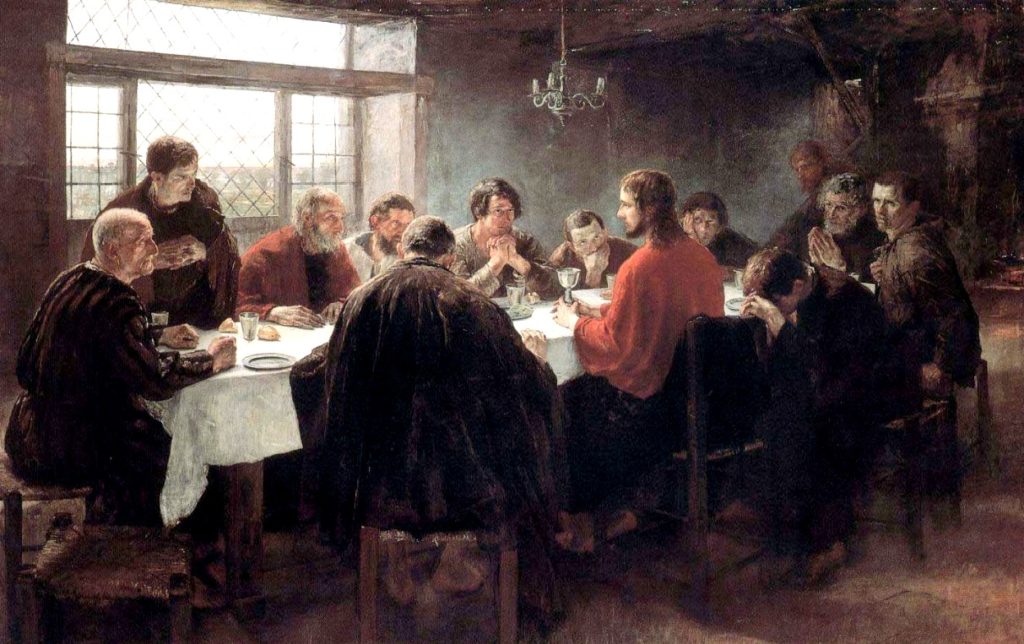Archive for April, 2021
On April 25, 2007, Boris Yeltsin is buried
Posted by Damien Galeone in Blog on April 26, 2021
…and finally lands at Shannon

The mood was heavy. People were crying. It was a state funeral in Moscow, a city made for bereavement. Red carnations colored the road between the church and the Novodevichy Cemetery, where the procession would head. In the crowd, old ladies wearing babushkas interwove between Bill Clinton and George Bush Senior. In front of them was Vladimir Putin, on whose thin young face one can almost see the dismantling of democracy being worked out and bare-chested horseback pictures being staged.
It was an event that Boris Yeltsin would have livened up by chucking back a couple of shots or by stealing the microphone from the priest to sing a Billy Joel tune. He might have done so were he not the one in the coffin. He was big and stocky even in the box, a white-haired Russian Bear, replete with snout, puffy cheeks, and beady ursine eyes. His wife spoke into his ear for a minute (getting in one last nag, no doubt. You forgot to take out the trash, Boris). He was lowered into the ground and the Russian national anthem played. Boris Yeltsin had landed at Shannon.
Boris Yeltsin’s early life reads like Paul Bunyanesque legend. “The boy from the Urals” was almost drowned during his baptism by a drunken priest. Subsequently, his parents named him “Boris” because he was a fighter (Borets in Russian). During World War II, he snuck into an ammo dump to steal a hand grenade and proceeded to blow off two of his fingers. Though he still managed to give a bone-crushing handshake. When he owned a construction company, he climbed and pacified an out-of-control crane in a heavy storm. His later life acts didn’t disappoint, with him making speeches on tanks and suppressing communist coups.
Read the rest of this entry »The History of Cats Pissing People Off
Posted by Damien Galeone in Blog on April 19, 2021

Friday morning. I get up nice and early. The sun is out as if by accident, it seems, these days. I have coffee. No students to see today. No planning. Just writing and a notebook, a bit of editing on the computer. Utter joy. The cat jumps up on the back of the couch, which lies to the right of my desk in the living room.
We are creature of habits, so I know what’s coming. She stalks down the spine of the couch, stopping to nibble the dangling leaves of various plants who wished they were up higher. A ladybug distracts her for a moment. She crouches, her pupils go took-too-much wide as she watches the benign being flutter to the window. Our house enjoys a moderate infestation of ladybugs, who gather in tiny red and yellow clusters on the ceiling and around the windows in spring and summer. At least it’s not black widows, I tell myself. After smashing the ladybug against the window and noting the place where it’s fallen, she gets back to her stalk. In a matter of moments she’s creeping over a row of notebooks at the back of my desk, and then in between my document stand and my computer. She then peers around the back of my computer at me, daring me to invade what she has deemed as her territory. I wouldn’t dare – I like my fingers too much. Finally, she gives up her territory and steps across my keyboard adding her own comment to my essay. “dwwwwwwwwwwwwwwwwwwwwwwwwwwwwwwwwwwwwwwwwwwwwwdddddddddddddddfffffffffffmmmmmmmmmmmmmmmmmmmmmm,,,,,,,,,,,,,,,,,,,,,,,,,,,,,,,,,,………////..”
Commentary with which I agree to some level, but find mostly derivative of her previous points. She then dances around in front of me on the desk, stepping on my tablet, my notebook, smudging recent notes; her tail is interminably flipping at my nose in a way that’s too precisely annoying to be coincidental. Soon, she stops and stands sideways on the desk in front of me. She then steps down onto my right thigh with her front legs and, as we both know I will, I lift her back legs and place them on my left thigh.
It’s a common scene in my house. The cat stands on my thighs, nose tucked in my right elbow, tail vying with my left forearm for air superiority. I write off my left shirtsleeve, which takes the brunt of things better left unsaid. She settles, finally, and we enter a state of mutual understanding (comfort in her case; resignation in mine). I am careful not to disrupt this balance of quiet and serenity as I get back to work. It is a volatile calm.
Read the rest of this entry »The Great Fitzgerald: America’s Boozer
Posted by Damien Galeone in Blog on April 12, 2021

If you went to high school after the 1950s, you probably find it inconceivable that The Great Gatsby wasn’t published to great fanfare. Critics loved it, but the public greeted its arrival with the same exuberance as they might a downstairs neighbor they could hear through the floor. Evidently crates and crates of it sat in the publisher’s warehouses for decades, until they were dusted off and handed out to my sophomore English class in 1989.
Gatsby embodies every little bit of the Roaring Twenties. Flappers, jazz, women smoking in public, speakeasies. Gatsby is rumored to be a bootlegger and he throws lavish parties for elites. He calls Nick “Old Sport.” The book is the cat’s pajamas.
At the time Gatsby was written, America was in the middle of prohibition, which made the sale or consumption of alcohol illegal. To be fair, America had developed a bit of a drinking problem. I mean, America had always been a drinker. The Pilgrims came off the Mayflower wondering which apples would make the best cider. Throughout the 18th century, beer, wine, and cider washed down breakfast, lunch, and dinner. For a long while America had a good happy buzz. But as farmers cultivated grains in the late 18th and 19th centuries, whiskey and rum replaced beer and cider. And America traded in its beer mugs for shot glasses. With this switchover came problems like rising death rates due to alcohol, domestic abuse, and unemployment. By the early 20th century, it’s arguable that America needed an intervention.
The Temperance Movement hoped to remove the temptation to drink. But this, and I can’t stress this enough, did not work. People found a way around being sober. In the 1920s speakeasies were booming, bathtub gin was common, and doctors would prescribe whiskey for ailments like back pain, stomach pain, or being married to an asshole. The prisons were filled with bootleggers and drinkers and everyone apparently had syphilis. Bathtub gin was crippling people, making them blind and leaving them paralyzed. So the Temperance Movement did not stop people from drinking as much as it made them more creative, destroyed lives, and indirectly made people’s genitals burn.
France was a different story (but not with syphilis). At the same time that America was trying to stop people from drinking, France was encouraging it. France was in a period of post-war euphoria. There were new fashion trends, new music, new artistic movements, and booming tourism. Artists, musicians, and writers were among those who found France preferable to their native land. France was cheap and artists relished the idea of living in close approximation to legal alcohol, like-minded thinkers, and prostitutes. And among these numbers were the Lost Generation. The term, coined by Gertrude Stein and used by Hemingway in The Sun Also Rises, referred to the “directionless wandering” spirit of the war’s survivors striving to cope with the carnage and destruction of the First World War. (No wonder they all needed a drink). They were unable or unwilling to cope with living in America, preferring instead a place with a once-in-a-generation arts community and the ability to get drunk without a doctor’s note.
Not only are the Lost Generation writers known for their drinking prowess, they’re believed to be the origin of the archetypal alcoholic writer. While every culture has its drunk pen-smiths, the concentration is highest among male American writers. And not only male American writers, but those born in the late 1800s and writing in the 1920s to the 1950s. All one needed was a penis, a rollneck sweater, and a crippling yet charismatic weakness to fit the pattern of the mythic genius writer. For F. Scott Fitzgerald this weakness was never in doubt. Booze. He was a self-professed alcoholic. “I’m Scott Fitzgerald, the alcoholic,” he would introduce himself. And then he would probably fall asleep on the floor or go swimming in a fountain with his insane wife. While at Yale, he would often brag in his letters that his shaky script was a result of “beers and a few Bronxes [cocktails].” Perhaps the true wonder of Gatsby is that Fitzgerald stayed sober enough to write it.
Fitzgerald and his wife Zelda’s relationship teetered on a rickety bar cart. In the brutal character evisceration of his friends known popularly as A Moveable Feast (subtitle: My Former Friends and Why They Suck), Hemingway claimed that Zelda kept Fitzgerald drunk because it would disable his writing. She had literary ambitions of her own and was evidently jealous of his success. She in turn claimed (not in his book) that Hemingway and Fitzgerald were lovers. So while Fitzgerald tried to stay sober long enough to write, Zelda gummed up the works. In her defense, it wasn’t hard. And if it was her goal, it worked. Hemingway pointed out that in the mid-1920s Fitzgerald was drinking too much and barely working. By the mid-late 1920s he was drinking while writing which led to unpublished and unaccepted stories. In the hopes of keeping himself sober enough to work, Fitzgerald invited Hemingway to their cottage town and waxed happy about their potential day. We’ll find an inexpensive villa and we won’t drink and it’ll be like the good old days and we’ll swim and be healthy and brown and we’ll have one aperitif before lunch and one before dinner. It’s sad in a sort of nostalgic, was-Zelda-onto-something kind of way. (NB: Zelda’s claim is not harmed by the fact that at a café once, Fitzgerald asked Hemingway to check his penis to make sure it was big enough. Spoiler alert: it was fine).
Read the rest of this entry »On April 1 33 AD, Thirteen Guys in Jerusalem had Dinner and Wine
Posted by Damien Galeone in Blog on April 5, 2021

Scholars suggest it was a Wednesday. And, to those outside their inner circle, it was probably a Wednesday like most others. Thirteen guys were meeting for dinner in Jerusalem. Two had been instructed to go to “the city” to meet “a man carrying a jar of water.” This man would then bring them to a house with an upper room furnished and ready for dinner.
The thirteen of them reclined on pillows and ate food that sat in stone bowls on low tables. They ate lamb, bean stew, olives with a mint-like herb called hyssep. They nibbled on dates, a pistachio and date charoset, unleavened bread, and a fish sauce called tzir. They drank wine. It was probably quite a pleasant evening until the hyssep hit the fan and the course of history was drastically altered.
The Last Supper is one of the most famous events in all of the world, let alone Christianity. It is trumped perhaps only by the event which occurred two days later. You don’t have to be a Sunday school grad to know the rest of the evening’s events. Jesus brought his twelve disciples to dinner. He washed their feet and then predicted that Judas would betray him. Judas left to alert the Sanhedrin. Jesus then gave a lengthy farewell address during which he talked about love, hate, and that they should probably just split up the bill. He then predicted that Peter would deny him, a charge to which Peter hooted vigorously. Jesus and three of his disciples were captured later in the Garden of Gethsemane, where Jesus was suffering the Agony in the Garden. The rest, as they say, is bitterly contested, world changing, unimaginably divisive history.
So, how is this drunken history?
The better question is – how is it not?
Read the rest of this entry »